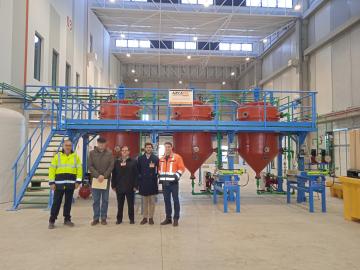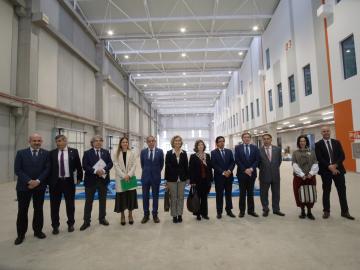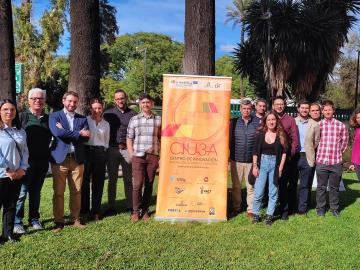Metals From the Andalusian Pyrite Belt for the Efficient Storage of Renewable Energy
Chief researcher
Researcher
Location
Technology
Electrochemical methodologies/Materials
Allied agents
Summary of the proposal
One of the main challenges in the implementation of renewable energy, such as solar or wind energy, is to balance the power grid during fluctuations in supply and demand. This requires the availability of the appropriate technology to store electrical energy. In this context, different methodologies are being developed and improved, including physical methodologies, which include pumped hydroelectric power plants and compressed air storage, as well as electrochemical methodologies, which consider fuel cells and rechargeable batteries. Within the latter group, redox flow batteries are one of the most interesting options due to their easy scalability and the possibility of developing safe, highly efficient, long-lasting and environmentally friendly systems. This project focuses on the use of metals from the Andalusian Pyrite Belt (Copper, Zinc, Lead, Cu-Zn-Pb) to develop efficient new generation batteries for renewable energy storage.
Project goal
The main objective of this thesis project is to study electrochemical technologies, mainly based on fuel cells and redox flow batteries, for the development of a massive pilot scale electrical energy storage technology.
Expected results and indicators
• Understand the state of the art of the technologies of interest to perform this work.
• Define new electrochemical technologies for the accumulation of electrical energy and the laboratory-scale construction of efficient batteries and fuel cells as possible ways to efficiently extract the valuable elements contained in the selected raw materials.
• Scaling of the selected prototype.
Indicators:
1 new researcher
1 transfer contract
3 conferences
2 publications
1 PhD thesis
Potential technological impact of the project (TRL)
During the first three years of the research, it is estimated that the basic laboratory-scale research stage will be undertaken in order to progress to a TRL-3/4 stage of development. In the last year it is expected that a full prototype will be completed to reach TRL-5/6.




